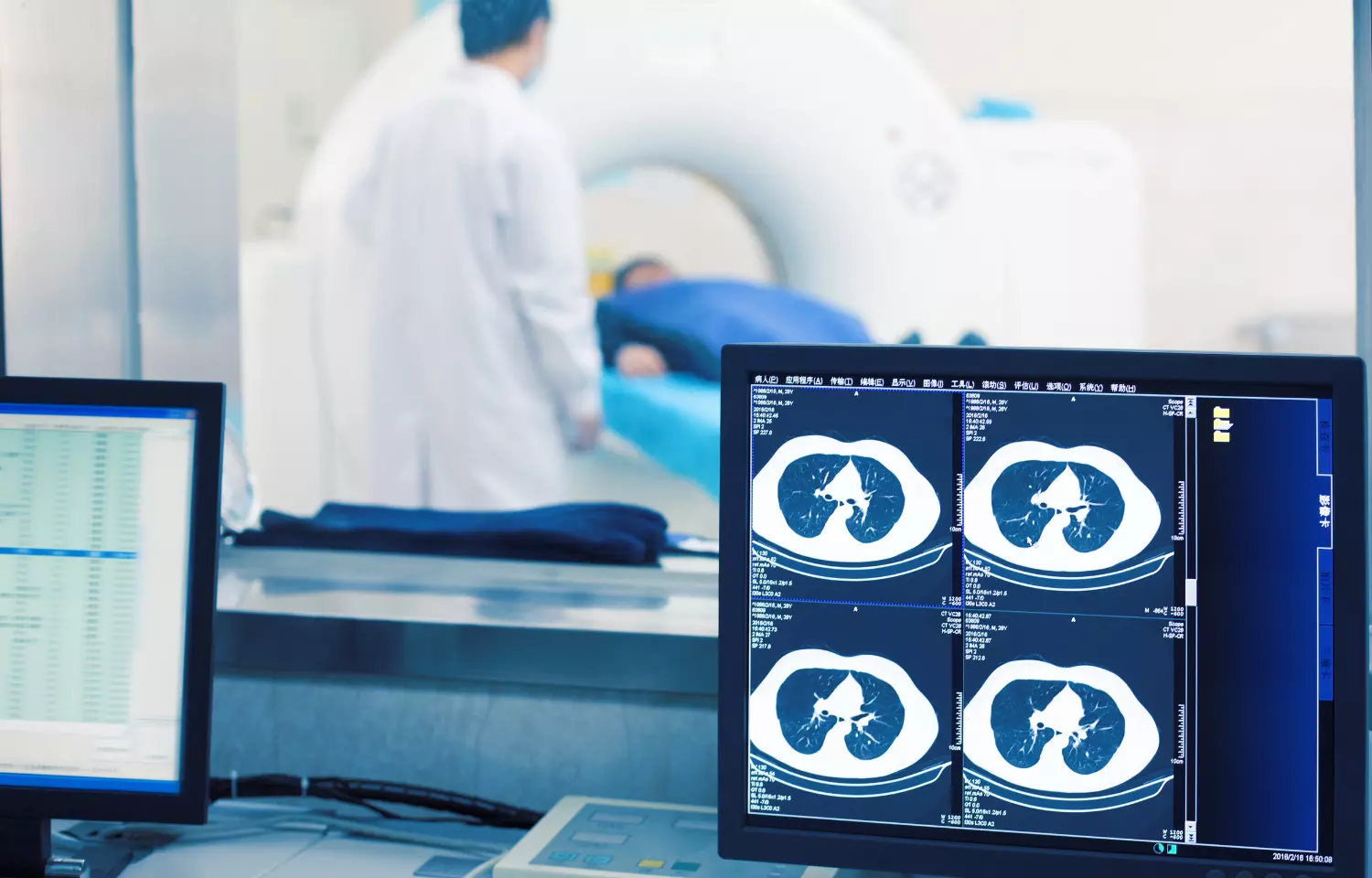- Home
- Medical news & Guidelines
- Anesthesiology
- Cardiology and CTVS
- Critical Care
- Dentistry
- Dermatology
- Diabetes and Endocrinology
- ENT
- Gastroenterology
- Medicine
- Nephrology
- Neurology
- Obstretics-Gynaecology
- Oncology
- Ophthalmology
- Orthopaedics
- Pediatrics-Neonatology
- Psychiatry
- Pulmonology
- Radiology
- Surgery
- Urology
- Laboratory Medicine
- Diet
- Nursing
- Paramedical
- Physiotherapy
- Health news
- AYUSH
- State News
- Andaman and Nicobar Islands
- Andhra Pradesh
- Arunachal Pradesh
- Assam
- Bihar
- Chandigarh
- Chattisgarh
- Dadra and Nagar Haveli
- Daman and Diu
- Delhi
- Goa
- Gujarat
- Haryana
- Himachal Pradesh
- Jammu & Kashmir
- Jharkhand
- Karnataka
- Kerala
- Ladakh
- Lakshadweep
- Madhya Pradesh
- Maharashtra
- Manipur
- Meghalaya
- Mizoram
- Nagaland
- Odisha
- Puducherry
- Punjab
- Rajasthan
- Sikkim
- Tamil Nadu
- Telangana
- Tripura
- Uttar Pradesh
- Uttrakhand
- West Bengal
- Medical Education
- Industry
New PET tracer noninvasively identifies cancer gene mutation for more precise diagnosis and therapy

A novel PET imaging tracer has been proven to safely and effectively detect a common cancer gene mutation that is an important molecular marker for tumor-targeted therapy. By identifying this mutation early, physicians can tailor treatment plans for patients to achieve the best results. This research was published in the December issue of The Journal of Nuclear Medicine.
Kirsten rat sarcoma (KRAS) is a commonly mutated oncogene that is present in approximately 20-70 percent of cancer cases. Patients with KRAS mutations usually respond poorly to standard therapies. As such, the National Comprehensive Cancer Network and other leading cancer research centers recommend assessing the mutation status in cancer patients to determine the most effective treatment.
“Currently, KRAS mutation screening relies on a biopsy combined with gene sequencing. However, biopsies have the potential for significant complications and their use is limited by the quality of the tissue sample. Thus, there is an urgent need for accurate yet noninvasive methods of evaluating the KRAS mutation status,” stated Jing Wang, MD, PhD, nuclear medicine physician at Xijing Hospital of Fourth Military Medical University in Xi’an, China.
In this first-in-humans study, researchers sought to develop a KRAS-targeted radiotracer and investigate its targeting potential in non-small cell lung cancer (NSCLC) and colorectal cancer.
An oncoprotein-targeted PET tracer, 18F-PFPMD, was created based on a recently FDA-approved KRASG12C inhibitor. The targeting specificity and imaging ability of the tracer were assessed through both in vitro and in vivo study. Further evaluation in healthy volunteers, non–small cell lung cancer (NSCLC) patients, and colorectal cancer (CRC) patients was also conducted.
18F-PFPMD was obtained with a high radiochemical yield, radiochemical purity, and stability and was proven to selectively bind to the KRASG12C protein in preclinical studies. The tracer was found to be safe for humans, clearing rapidly from the gallbladder and intestines. In NSCLC and colorectal cancer patients, 18F-PFPMD accumulation was significantly higher in tumors with the KRASG12C mutation as opposed to those without the mutation.
“This research reveals that 18F-PFPMD is a promising molecular imaging tool of significant clinical relevance,” said Wang. “Moving forward, the tracer could be useful to screen the KRASG12C mutation status, as well as for patient selection of KRASG12C targeted therapy. Moreover, it could be used for monitoring therapeutic response and drug resistance for cancer patients.”
Reference:
Xiang Li, Jiajun Ye, Jingyi Wang, Zhiyong Quan, Guiyu Li, Wenhui Ma, Mingru Zhang, Weidong Yang, Junling Wang, Taoqi Ma, Fei Kang and Jing Wang, First-in-Humans PET Imaging of KRASG12C Mutation Status in Non–Small Cell Lung and Colorectal Cancer Patients Using [18F]PFPMD, Journal of Nuclear Medicine, DOI: https://doi.org/10.2967/jnumed.123.265715.
Dr Kamal Kant Kohli-MBBS, DTCD- a chest specialist with more than 30 years of practice and a flair for writing clinical articles, Dr Kamal Kant Kohli joined Medical Dialogues as a Chief Editor of Medical News. Besides writing articles, as an editor, he proofreads and verifies all the medical content published on Medical Dialogues including those coming from journals, studies,medical conferences,guidelines etc. Before Joining Medical Dialogues, he has served at important positions in the medical industry in India including as the Hony. Secretary of the Delhi Medical Association as well as the chairman of Anti-Quackery Committee in Delhi and worked with other Medical Councils in India. Email: editorial@medicaldialogues.in. Contact no. 011-43720751



